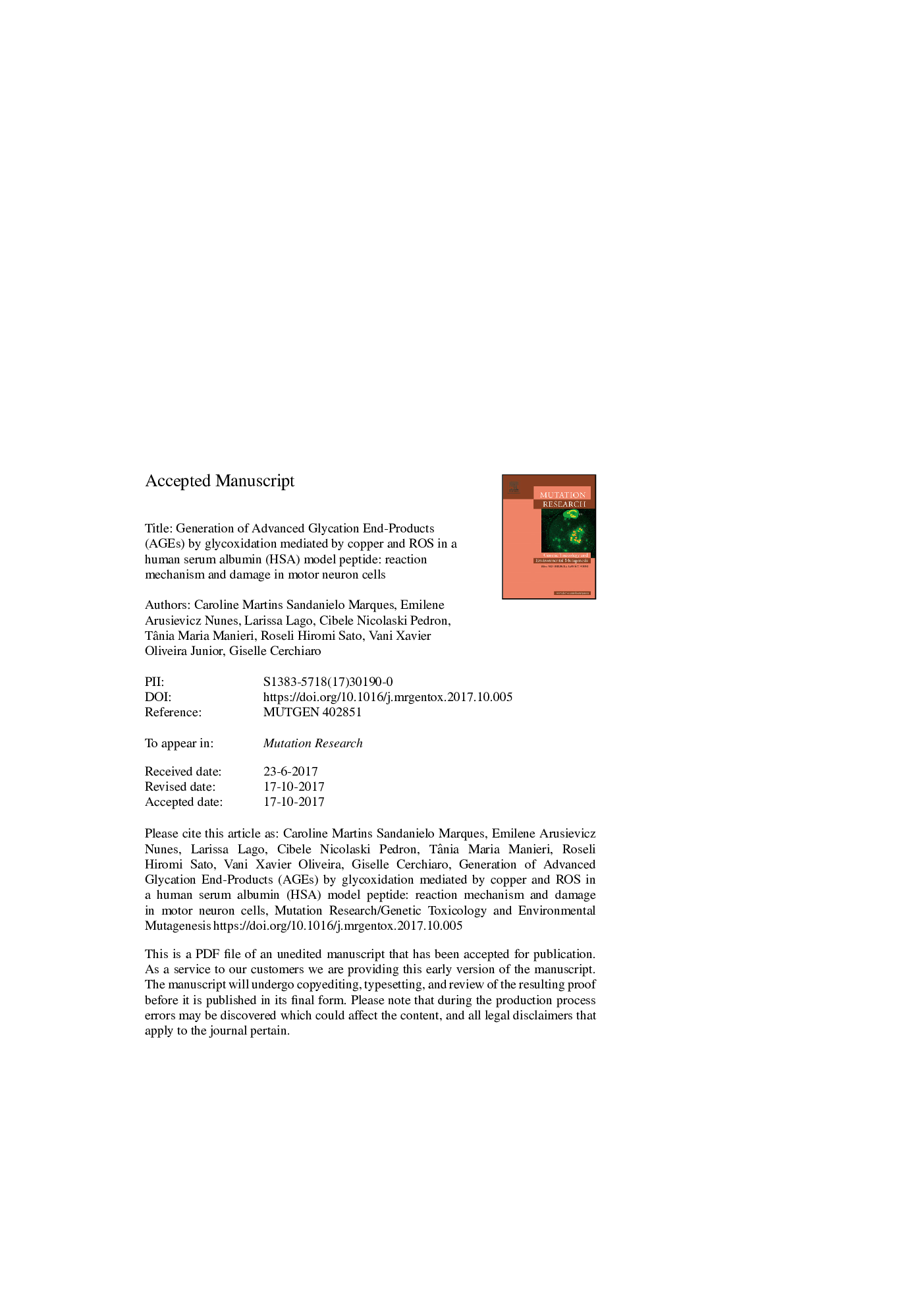| Article ID | Journal | Published Year | Pages | File Type |
|---|---|---|---|---|
| 8456249 | Mutation Research/Genetic Toxicology and Environmental Mutagenesis | 2017 | 30 Pages |
Abstract
Glucose, in the presence of reactive oxygen species (ROS), acts as an as an oxidative agent and drives deleterious processes in Diabetes Mellitus. We have studied the mechanism and the toxicological effects of glucose-dependent glycoxidation reactions driven by copper and ROS, using a model peptide based on the exposed sequence of Human Serum Albumin (HSA) and containing a lysine residue susceptible to copper complexation. The main products of these reactions are Advanced Glycation End-products (AGEs). Carboxymethyl lysine and pyrraline condensed on the model peptide, generating a Modified Peptide (MP). These products were isolated, purified, and tested on cultured motor neuron cells. We observed DNA damage, enhancement of membrane roughness, and formation of domes. We evaluated nuclear abnormalities by the cytokinesis-blocked micronucleus assay and we measured cytostatic and cytotoxic effects, chromosomal breakage, nuclear abnormalities, and cell death. AGEs formed by glycoxidation caused large micronucleus aberrations, apoptosis, and large-scale nuclear abnormalities, even at low concentrations.
Keywords
3-deoxyglucosoneAverage roughnessGlycoxidationCytokinesis-blocked micronucleus assayHPLC-ESI-MSNBUDNPBCBMNUMPAGEsAFM3-DGCMLHSAROShuman serum albuminnuclear budsDiabetes mellitusmicronucleiGenotoxicityadvanced glycation end-productsCopperatomic force microscopyCarboxymethyl lysineGlucoseReactive oxygen species
Related Topics
Life Sciences
Biochemistry, Genetics and Molecular Biology
Cancer Research
Authors
Caroline Martins Sandanielo Marques, Emilene Arusievicz Nunes, Larissa Lago, Cibele Nicolaski Pedron, Tânia Maria Manieri, Roseli Hiromi Sato, Vani Xavier Junior, Giselle Cerchiaro,
